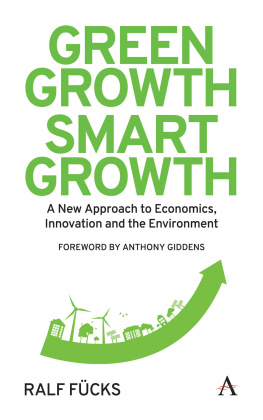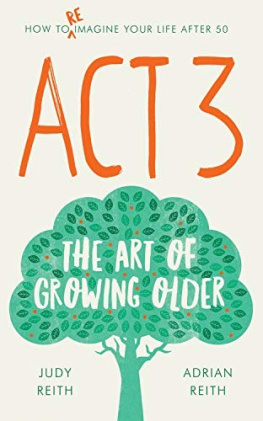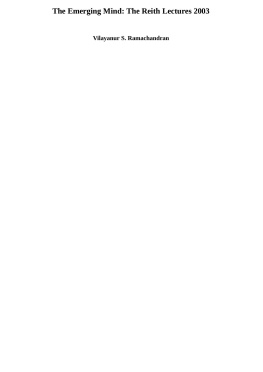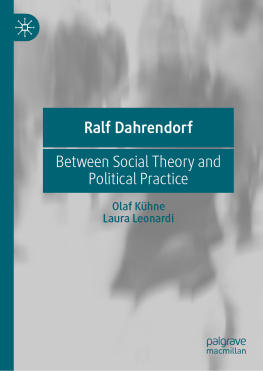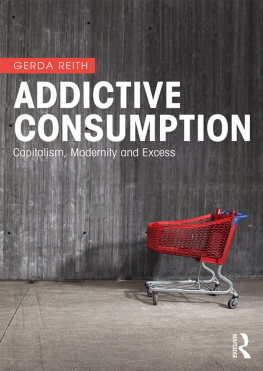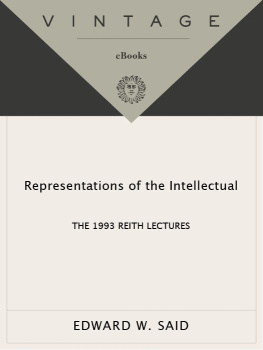First published in 1975 by Routledge & Kegan Paul Ltd.
This edition first published in 2022
by Routledge
2 Park Square, Milton Park, Abingdon, Oxon OX14 4RN
and by Routledge
605 Third Avenue, New York, NY 10158
Routledge is an imprint of the Taylor & Francis Group, an informa business
1975 Ralf Dahrendorf.
All rights reserved. No part of this book may be reprinted or reproduced or utilised in any form or by any electronic, mechanical, or other means, now known or hereafter invented, including photocopying and recording, or in any information storage or retrieval system, without permission in writing from the publishers.
Trademark notice: Product or corporate names may be trademarks or registered trademarks, and are used only for identification and explanation without intent to infringe.
British Library Cataloguing in Publication Data
A catalogue record for this book is available from the British Library
ISBN: 978-1-03-219648-0 (Set)
ISBN: 978-1-00-326063-9 (Set) (ebk)
ISBN: 978-1-03-219729-6 (Volume 4) (hbk)
ISBN: 978-1-03-219735-7 (Volume 4) (pbk)
ISBN: 978-1-00-326059-2 (Volume 4) (ebk)
DOI: 10.4324/9781003260592
Publisher's Note
The publisher has gone to great lengths to ensure the quality of this reprint but points out that some imperfections in the original copies may be apparent.
Disclaimer
The publisher has made every effort to trace copyright holders and would welcome correspondence from those they have been unable to trace.
First published in 1975
by Routledge & Kegan Paul Ltd
39 Store Street
London WCIE 7DD and
Broadway House, Newtown Road
Henley-on-Thames, Oxon. RG9 IEN
Reprinted 1977
Set in Monotype Ehrhardt
and printed in Great Britain by
Lowe & Brydone Printers Ltd
Thetford, Norfolk
Ralf Dahrendorf 1975
No part of this book may be reproduced in
any form without permission from the
publisher, except for the quotation of brief
passages in criticism
ISBN 07100 81979 (C)
ISBN o 7100 8198 7 (P)
One
From expansion to improvement: changing the subject of history
The elementary desire to be free is the force behind all liberties, old and new. Indeed, there is little need to explain what this desire is, and some of us have found out about it in ways which we will not forget. I can still see myself, pacing up and down my cell in the prison of Frankfurt-on-Oder in November 1944 (I was fifteen and a half at the time), clutching an almost blunt pencil which I had pinched when the Gestapo officer during my first interrogation had left the room, and trying to write down all the Latin words which I could recollect from school on a piece of brown paper which I had pulled from under the mattress of my bunk. The youthful organization which had brought me into this predicament had been called, somewhat pretentiously, 'Freedom Association of High School Boys of Germany', and it had combined childish things like wearing a yellow pin on the lapel with more serious matters such as the distribution of fly-sheets against the SS state which had now caught up with me. The concentration camp afterwards was a very different experience really; dark mornings queuing in the icy East wind for a bowl of watery soup, the brutal hanging of a Russian prisoner who had stolen half a pound of margarine, slices of bread surreptitiously passed to a sick or an old man; a lesson in solidarity perhaps, and above all one in the sacredness of human lives. But it was during the ten days of solitary confinement that an almost claustrophobic yearning for freedom was bred, a visceral desire not to be hemmed in, neither by the personal power of men nor by the anonymous power of organizations.
The force of liberty, of the principles of a humane and open society, may be equally strong, but it needs explanation, and moreover, such explanation may lead to different conclusions at different times. The series of lectures which I begin today is about the political economy of liberty in a changing socio-economic climate. The new liberty which we can hope and work for, is a liberal response to a world which is in a process of radical transformation. Although the meteorology of the new climate is still imperfect, few people will doubt today that the weather has changed in which we conduct our social and economic affairs. But many have their doubts about the chances of liberty in a world of rising prices, falling incomes, a new distribution of power and impotence, threats of war and starvation, crime and disorder, and declining confidence in the capacity of those who govern, or even the institutions of government. Yet these chances exist, and since they are my main subject let me spend a few minutes disentangling what remains and what may have to be changed about liberty.
As a student of liberty I was lucky to find two great teachers who impressed upon me the two essentials of this principle. One was Karl Popper, the philosopher, at whose feet I sat at the London School of Economics in 1952-3. Popper was, and is, a polemicist who spent much of his time dismantling others, Bertrand Russell for example, Marx and Hegel, not to forget Plato although he allowed Kant and Socrates to escape his devastations. But his message is clear. 'We cannot know', Popper says, 'We can only guess'. Since none of the theories of science can finally be proven right, it is important to continue the effort of finding out whether accepted theories are wrong; and in order to do so we have to maintain the conditions of rational, critical discourse in which it is possible to disagree. What is true for our knowledge holds for our ethics and politics as well. Since nobody knows all the answers, let us make sure above all that it remains possible to give different answers.
This is the assumption underlying the constitution of liberty in all its versions. It tells us that we need checks and balances, rules of conflict, possibilities of change. But there are things which it does not tell us about a liberal order. Mature citizens demand direct participation in their affairs; the new liberty requires the combination of this legitimate demand with the need for stimulating initiative as well as recognizing the order of magnitude of some of the great issues facing us. The progress of citizenship, of the right of association, of the autonomy of many social organizations and institutions has led to a fragmentation of the political public, so that representative government has been transformed into a gigantic and confused bargaining process between organized groups, which leaves the individual in the position of Laokoon rather than that of a proud citizen; we will not have the new liberty unless we create a new kind of effective general public which guards and develops the rules by which we decide on our affairs. In other words, liberty remains a response to the fact that we live in a world of uncertainty, in which nobody can claim to have found the grail of ultimate wisdom; but the constitution of liberty tomorrow is going to look different from yesterday's and today's.
The other liberal essential is social and economic rather than political. Milton Friedman, the economist, is a man who suffers fools, and those whom he so regards, even less gladly than Karl Popper. The year of 1957-8 which we spent along with a number of common friends in the inspired leisure of the Centre for Advanced Study in the Behavioural Sciences in California was coloured by endless debates with Friedman about the need for licensing physicians, the use of the state for organizing social welfare, and the role of government in education. For him, there is of course no such need, use, or role. 'Every act of government intervention', he says, 'limits the area of individual freedom directly and threatens the preservation of freedom indirectly.' And I confess that I am still sufficiently impressed by the argument to wonder whether the collection of rubbish in our cities might not be more reliable if it was left to private enterprise. At the same time, Friedman's obsession with the illiberal potential of government makes him underestimate at least two major issues of the day. The new liberty may well have to be gained not only against the bureaucratic imperialism of government agencies, but as much if not more against the uncontrolled power of allegedly private organizations, giant companies, for example, or trade unions. Moreover, we must raise the question of whether the notions of free collective bargaining, or of the competition of private firms in an open market, important as they are, have as much relevance for individual life-chances today as they did in an economy of expansion. The rearrangement of education, work and leisure in an improving society may require a redistribution of economic power which cannot be brought about by market forces alone. And since I am talking about Friedman, let me just mention that I also wonder whether a technical monetary approach touches the core of the problem of inflation without the solution of which there will be no liberty, old or new.


